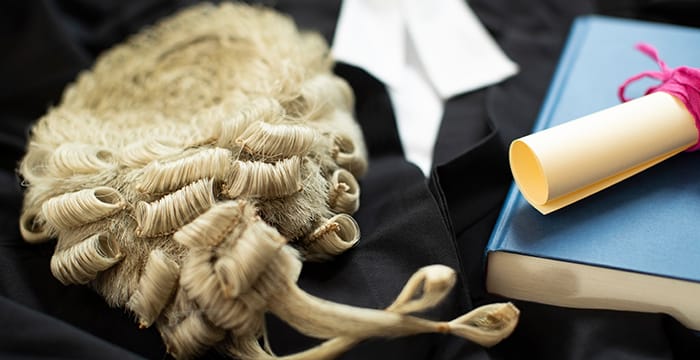Ryan Eve vindicated in High Court after regulator’s blunders

The Bar Standards Board (BSB) has come under withering fire from a High Court judge for its treatment of an overseas student kicked off the bar training course in error.
Ryan Eve was forced to drop out of the Bar Professional Training Course (BPTC) with just three months to go after the BSB raised doubts about his perfectly valid English law degree. The regulator then botched his application for an exemption from the remaining bits of the course, leading it to crash to defeat in the High Court yesterday.
In a judgment published yesterday, an incensed Mr Justice Griffiths described what happened as an “injustice” and ordered the BSB to reconsider.
The BSB said: “The judgment identifies lessons from which we can learn and we will be reflecting on those over the coming weeks.”
Eve is from the Bahamas and began his law degree at Nottingham Trent by distance learning. He later transferred to an in-person course at Northumbria, graduating with a 2.2.
The next step on his journey to the bar was the BPTC, which he started in 2014, also at Northumbria. The judgment records that Eve was “on course” to pass and be called to the bar of England and Wales — meaning he could be admitted to the bar in the Bahamas as well.
Disaster, in the form of the BSB, struck when Eve was just a few months shy of qualifying. The regulator decided that Eve’s distance learning credits from Nottingham Trent didn’t count and so he didn’t have the academic credentials needed to take the BPTC in the first place.
This, Griffiths pointed out, was “a most surprising development given that he had actually graduated from [Northumbria]”. In fact, the regulator (and/or the university) had made a terrible mistake: a year or so later, both institutions wrote to Eve saying that they had changed their minds and his degree was in order.
By then, it was far too late: Eve had been forced to quit the course by order of an “implacable” BSB and was back in the Bahamas with nothing to show for his studies (and fees). He found a job at a local law firm doing what sounds like paralegal work and never qualified as a barrister.
Eve told the court that he returned “in a very bad state mentally. I felt like the world had come to an end”.
In the High Court’s admiring words, “he never gave up”. Eve approached the BSB to ask for a waiver that would allow him to be called to the bar without completing the BPTC, under a recognised procedure for such exemptions.
In his application, he included a glowing reference from his firm, proof of passing most of his BPTC exams, and the BSB’s own letter showing how he had been forced to drop out “just short of the finishing line” through no fault of his own.
The BSB said no. Eve appealed, then appealed again to the High Court.
A clearly sympathetic Griffiths carpeted the BSB’s handling of the exemption application. Eve had suffered “a misfortune, indeed an injustice, for which he was not responsible, namely the incorrect decision to prevent him completing his BTPC in the first place”.
Despite that, the decision to reject his exemption application “effectively provided no reasoning at all”. It could, Griffiths said, “have been written by someone who had not read the documents. There was certainly nothing… to demonstrate that the author had read them”.
The review panel then “doubled-down on the reasons in the Original Decision and added nothing to them”. If anything, they produced a decision “even more defective than the Original Decision”. The judge noted that the names of the guilty panel members had been redacted from court documents “for reasons which have not been explained”.
The judgment concludes:
“The failure to provide adequate reasons in both the Original Decision and in the Review Decision was a serious irregularity which rendered both decisions unjust and unsustainable, with the result that the appeal will be allowed”.
That doesn’t mean that Eve automatically gets his exemption, though. The case goes back to the BSB for a fresh decision.
British barristers took to Twitter to register their disgust at the regulator. Edward Levey QC of Fountain Court Chambers described the case as “troubling”.
While Barbara Rich of 5 Stone Buildings called it “a series of life-wrecking mistakes and inadequate decisions made by the regulator for the blameless applicant, all involuntarily paid for by us”.
Eve’s barrister, Tom Wilding of The 36 Group, said: “I am delighted for my client and do hope that he gets a positive result second time around.”


